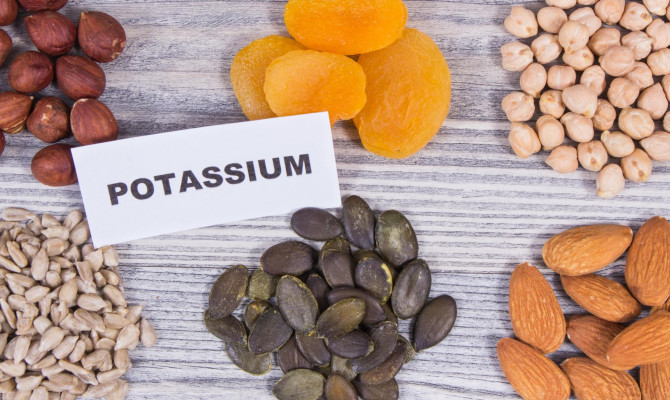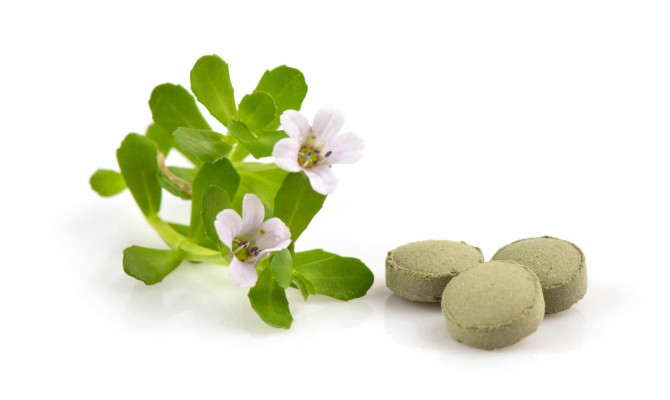Green tea and its health benefits

- Green Tea
- 17 Aug 2023
Overview
About Green tea
Few beverages worldwide can compare to green tea’s time-honored charm and nutritional properties. This has enchanted tea lovers’ palates and hearts for generations, becoming a fundamental component of many different cultures and traditions.
We will explore the fascinating history of green tea, delve into its unique health advantages, and savor the exquisite flavors that make it a true treat for the senses as we embark on this journey.

Key Facts
- Green tea is derived from the same Camellia sinensis plant as black, white, and olong tea.
- It was first eaten in ancient China and has been around for a long time.
- Known for its vivid green color, matcha is a unique variety of powdered green tea that is highly concentrated.
- There are many different types of green tea, each with unique qualities.
Nutritional profile
Nutritional Profile of Green tea
Caffeine
- There are approximately 20-45 mg of caffeine in an 8-ounce cup.
Antioxidants
- A type of polyphenol known as catechins. The most prevalent and powerful one is epigallocatechin gallate.
Vitamins
- Vitamin C, vitamin (B2), folate, and B3.
Minerals
- Potassium, manganese, and magnesium are minerals.
Polyphenols
- Flavonoids and other polyphenolic substances are also present.9Nutritional Profile| Researched based study from Usda.gov
Health benefits

Health benefits of Green tea
- Reduces the signs of aging
- Reduces the risk of heart disease
- Helps in weight management
- Improves focus and alertness
- Reduces the risk of type 2 diabetes
- It may help prevent certain types of cancer.
- Suitable for the digestive system
- Promotes relaxation
Green tea is well known for its numerous health benefits, supported by traditional wisdom and scientific research. Here are a few examples:
Green tea for skin
- The skin can benefit from the antioxidant and anti-inflammatory effects. It might lessen UV rays’ effects, slow aging, increase skin hydration, and enhance the complexion.
Acts as antioxidant powerhouse
- Catechins, which are antioxidants, are abundant in them. These aid in reducing cellula by free radicals, preventing oxidative stress, and safeguarding the body from chronic illnesses.1Health benefits| Researched based study from Nlm.nih.gov
Promotes Cardiac health
- Heart disease risk has been connected to regular consumption. Green tea’s antioxidants may help lower LDL cholesterol levels, blood pressure, and cardiovascular health.
Helps in Weight management
- It has been noted for its potential contribution to weight control and loss. It has elements that speed up metabolism and improve fat oxidation, which help burn calories and support healthy weight management.1Health benefits| Researched based study from Nlm.nih.gov
Improves Brain function
- Caffeine and other bioactive substances can enhance focus, alertness, and cognitive performance, benefiting brain health. It might also protect against neurodegenerative conditions like Parkinson’s and Alzheimer’s.1Health benefits| Researched based study from Nlm.nih.gov
Lowers risk of type 2 diabetes
- It has been linked to a decreased risk of type 2 diabetes. The catechins could improve insulin sensitivity, lower the chance of developing insulin resistance, and help control blood sugar levels.1Health benefits| Researched based study from Nlm.nih.gov
Cancer prevention
- Studies indicate that it might have a preventive impact against some cancer types, while additional research is required. Green tea’s polyphenols may help prevent the development of cancerous cells and lower the risk of several malignancies, including lung, breast, colorectal, and prostate cancer.10Health benefits| Researched based study from Nlm.nih.gov
Promotes oral health
- As a result of its inherent antibacterial characteristics, it can help fight oral bacteria and lower the risk of tooth decay, gum disease, and foul breath. Additionally, it might support keeping healthy gums and teeth.1Health benefits| Researched based study from Nlm.nih.gov
Improves gut health
- It is well known for relaxing the digestive system. It can improve gut health, ease digestive problems, and aid digestion.
Stress relief and relaxation
- It contains L-theanine, which has been shown to support calmness, lessen stress, and elevate mood. It can calm you down without making you sleepy.1Health benefits| Researched based study from Nlm.nih.gov
Side effects
Side effects of Green tea
Effects of caffeine
- Compared to coffee, green tea has a lower concentration of caffeine. Excessive consumption can cause agitation, a faster heartbeat, anxiety, trouble sleeping, and irritability.
Stomach issues
- Some people may have digestive problems like upset stomach, diarrhea, or cons when having a green destination. This is caused by the tannins, which may impact the digestive system.2Side effects| Researched based study from Nlm.nih.gov
Iron absorption interference
- Green tea contains catechins, which bind to iron and possibly prevent the body from absorbing as much of it. For those who depend on plant-based sources of iron or have iron deficiency, this can be a cause for concern.
Osteoporosis risk
- A slightly increased risk of osteoporosis has been linked to excessive consumption, especially if it is eaten in large quantities with meals. This is due to the possibility that green tea could prevent the body from properly absorbing calcium.2Side effects| Researched based study from Nlm.nih.gov
Allergic responses
- Green tea or one of its components may cause allergies in certain persons. Since allergic responses can range in intensity and come with symptoms, it is best to get medical help immediately.3Side effects| Researched based study from Nlm.nih.gov
Usage
Selecting, preparing, using, and storing Green tea
Selection
- For the most incredible flavor and aroma, choose premium loose-leaf green tea. Look for tea with intact leaves that are fresh.
- Think about the type of green tea you like. Sencha, Matcha, Gyokuro, Dragon Well, and Gunpowder are just a few variations, each with unique features.4Usage| Researched based study from Harvard.edu
Green tea consumption
- The majority of consumers drink it hot. It can be used in baking and cooking to give dishes a mild tea flavor.
- Some people include the extract in supplements for cosmetics.
Preparation
- Avoid using boiling water because green tea is sensitive. The ideal water temperature is between 70 and 80 degrees Celsius, or 160 degrees Fahrenheit. Too-hot water can make the tea taste bitter when brewed.4Usage| Researched based study from Harvard.edu
Brew time
- Depending on the type and your preferences, steep it for between 1 and 3 minutes. A more potent, more bitter flavor may result in longer steeping times.
The ratio of tea to water
- For every 8 ounces (240 ml) of water, use around one teaspoon of loose-leaf green tea. Depending on the strength you desire, change the amount.
Fusion method
- The leaves can be brewed in a teapot, cup, or infuser basket. After the desired brewing period, strain or get rid of the leaves.
Storage
- Green tea must be stored carefully to preserve its quality because it is delicate to light, heat, moisture, and intense aromas.
- It should be kept in an airtight container out of reach of direct sunlight in a cold, dry location.
- Since moisture can collect when the container is opened in a humid environment, avoid storing it in the fridge or freezer.
- Use it within a suitable period (often within a year) to maximize its freshness and flavor.5Usage| Researched based study from Springer.com
Interactions
Interactions of Green tea
Absorption of iron
- Green tea includes tannins that may prevent non-heme iron (iron derived from plants) from being absorbed from meals. Green tea should be consumed between meals rather than with or after a meal to lessen its effect on iron absorption.
Clotting agents
- It has chemicals with potential anticoagulant effects and vitamin K. If you use any blood thinners, such as aspirin or warfarin, stay away from green tea.6Interactions| Researched based study from Mountsinai.org
Caffeine sensitivity
- You should restrict your green tea intake if you are caffeine-sensitive or using medications that can interact with caffeine, such as some stimulants, asthma treatments, or antidepressants.
Drugs to lower blood pressure
- Suppose you use any hypertension medications, such as beta-blockers or calcium channel blockers. In that case, it is advised that you regularly check your blood pressure because it may cause your blood pressure to decrease.8Interactions| Researched based study from Nlm.nih.gov
Medications affected by liver enzymes
- It contains compounds that could interact with liver enzymes involved in the metabolism of specific drugs, including some statins, anticoagulants, and anticonvulsants. This may impact the effectiveness or safety of these drugs.7Interactions| Researched based study from Nlm.nih.gov
Any feedback on this article?
 This Articles content was accurate
This Articles content was accurate Very Informative Article
Very Informative Article I have a question or a comment
I have a question or a comment
 This article contains inaccurate content
This article contains inaccurate content This article was not helpful
This article was not helpful I have a question or a comment
I have a question or a comment
We appreciate your helpful feedback!
Checkout our social pages
References
-
National Library of Medicine
Beneficial effects of green tea: A literature review | Benefits
-
National Library of Medicine
Adverse effects of concentrated green tea extracts | Side effects
-
National Library of Medicine
Iron deficiency anemia due to excessive green tea drinking | Side effects
-
Harvard T.H. Chan
The Nutrition Source | Usage
-
Springer Nature
Recommended storage temperature for green tea based on sensory quality | Usage
-
Mount Sinai
Green Tea | Interactions
-
National Library of Medicine
Green Tea | Interactions
-
National Library of Medicine
Effect of green tea consumption on blood pressure: A meta-analysis of 13 randomized controlled trials | Interactions
-
U.S. DEPARTMENT OF AGRICULTURE
Beverages, tea, green, brewed, regular | Nutritional Profile
-
National Library of Medicine
Green tea (Camellia sinensis) for the prevention of cancer | Health Benefits






































